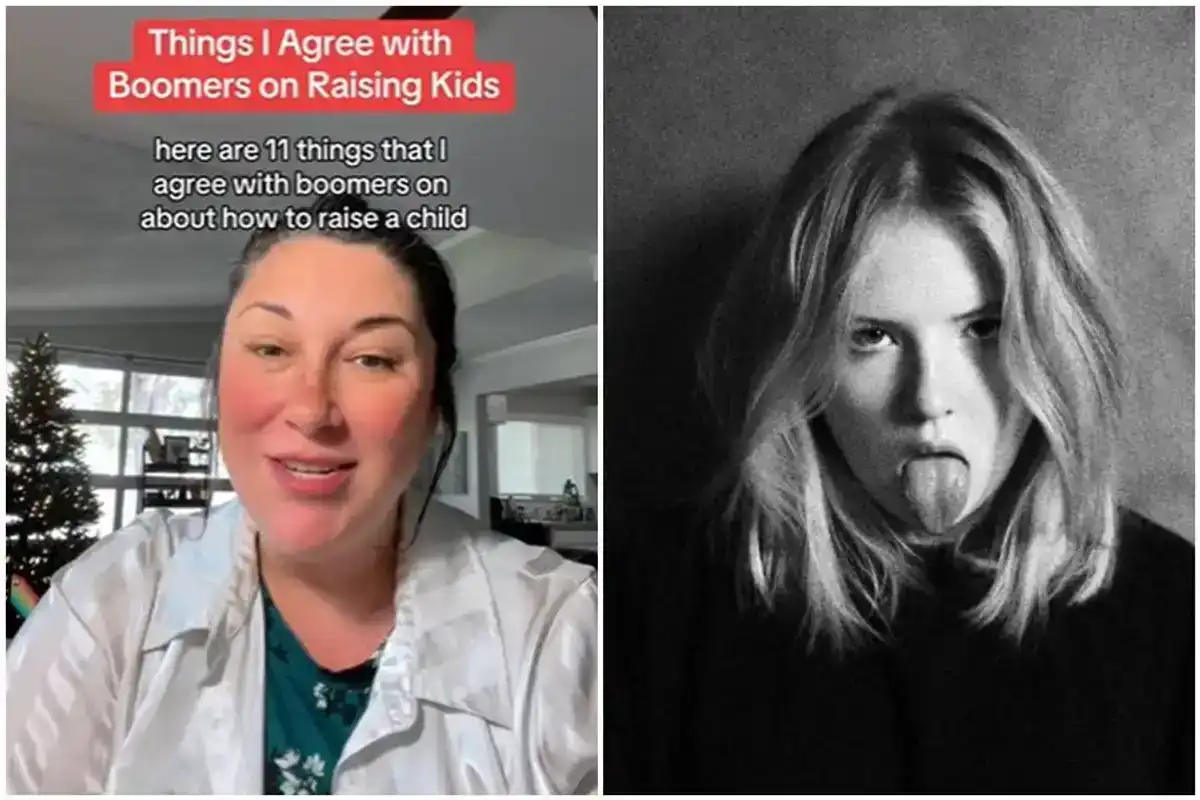Teacher reveals 11 things that boomer parents totally got right
"Simple greetings and simple terms of gratitude are just not being taught like they used to."
Teresa Kaye Newman thinks that boomer parents were right about a few things.
Teresa Kaye Newman, a teacher, knows a lot about how to deal with children. So she created a list of 11 things she agrees with baby boomers on when it comes to raising kids.
Newman believes she has credibility on the issue because she has 13 years of experience dealing with “hundreds and hundreds” of other people’s kids and has seen what happens when her so-called “boomer” parenting principles aren’t implemented.
Of course, Newman is using some broad stereotypes in calling for a return to boomer parenting ideas when many Gen X, millennial and Gen Z parents share the same values. But, as someone who deals with children every day, she has the right to point out that today’s kids are entitled and spend too much time staring at screens.
@teresakayenewman 11 Things I agree with boomer parents on raising children, as a #teacher and soon to be mom.
Here are the 11 things that Newman agrees with boomers on when it comes to raising kids:
1. No iPads
“All I’m going to say is my kid has a whole world to explore and none of that has to do with being stuck in front of a tablet.”
2. No smartphone until high school
“Kids that are younger than that age do not know internet safety to a point where I feel comfortable letting them have free reign of the internet.”
3. Teaching the value of education
“What I’m going to teach them is [education] has nothing to do with how much money you’re making or how successful you’ll be professionally. But you will still value it, nonetheless. You will go with it as far as you possibly can, and then once you’re done with it, you can do whatever you want.”
4. Respect your teachers and treat them well
“This may be biased because I am a teacher, but everyone who has gone through a professional degree program and has put in the time and is there, giving you the quality education, deserves some type of attention and deserves to be treated well.”
5. Be kind to elderly folks
“If they’re on public transportation and they’re sitting down and there’s an old lady standing next to them and there are no other seats available, my child will know to stand up and give that lady his seat.”
6. Yes, ma’am
“It does not matter your age or status in society, as long as they are respecting their pronouns, that’s how we’re gonna be talking to other people.”
7. Greetings and gratitude
“Simple greetings and simple terms of gratitude are just not being taught like they used to. I think it’s really sad.”
8. Consequences for poor behavior
“If they’re neglecting their schoolwork and not doing what they’re supposed to do, they get their technology taken away. … Simple things like this are pretty common sense and I’m not sure why they’re not being done anymore.”
9. Respect adult conversations and spaces
“They don’t get to interrupt 2 adults speaking to each other. They don’t get to come and butt in at an inappropriate time when 2 people are talking to each other."
10. Clean your mess
“My child is going to put as much work in the house as we are regardless of whether he’s paying rent out of his own pocket or not. That’s because when my son becomes an adult, I want him to be a partner or a spouse or a roommate that someone is proud to have around.”
11. Bedtime
“I don’t care how old my kid is as long as he is living under my roof as a minor; he’s gonna have some sort of bedtime. But this staying up until 3 or 4 or 5 o’clock in the morning or pulling all-nighters like kids are used to … is absolutely not normal. And I’m not going to have a kid that’s staying up that late and then not waking up the next day.”
This article originally appeared on 12.20.23



